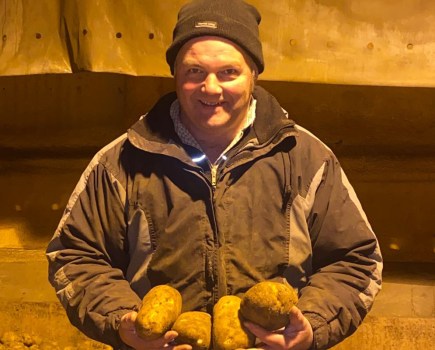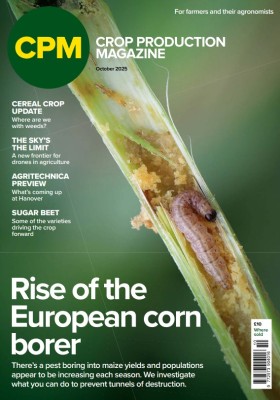By Martin Lines
I’m writing this during the party conference season, during which I’ll get the opportunity to attend a range of events for many different political parties. And in all of them, I’ll be putting forward discussion points around and explaining why diversity in our countryside, in farming, and in life, is so important.
Our farm systems and food production are based on and underpinned by the diversity of nature, whether you farm in Cornwall, Cambridgeshire or Cumbria. Show me a farm that doesn’t require the sun, the rain, or the life in the soil? Ecosystems thrive when they’re diverse – from pests to predators, worms to wildflowers and beetles to birds. When nature is thriving, so are our crops.
Farmers, while they may invest time and energy into a single crop, are often delivering or responsible for many other public goods and services – the diversity providing resilience for their businesses. And while our guiding principles may be the same, the diversity of the geology, cropping field sizes and markets all combine to create unique challenges, opportunities and beautiful landscapes.
Diversity is about variety, and within that variety, we must find balance. When farmers implement a diverse cropping rotation containing multiple varieties, no one thing is over-dominant. Disease and weed pressures don’t build up because the soil is being used in different ways with each crop, meaning we don’t have to worry so much about lower yields or costly inputs. Finding that balance may take time – and mistakes.
This time of agricultural transition is a one to create diverse experiments. Learning which plants complement each other and provide desirable outcomes, or which are too complex, time-consuming or degenerative, with no benefits. If all farmers trialled one thing on their farms, and if all of those farmers then shared that new knowledge with their neighbours, think of the learning that could be done. After all, many roots make a stable tree.
Some years ago, I challenged myself to attend a range of organic events as a non-organic farmer, not knowing how I would be received by a community with very different thoughts and practices than my own. Being open to listening to a diversity of approaches and people, and how they’re finding creative solutions to problems we all have, has certainly influenced the way I farm and has enriched me with a wonderful variety of experiences and knowledge. I wasn’t 100% converted to any one person’s ideas and approaches, but I did take a little gem of wisdom from almost everyone I met.
Throughout the past few years, I’ve watched some farmers I know and respect, change. They’re growing more and more fixated on one method, or on a particular belief, and proceed doggedly with blinkers in that direction. This can sometimes be a reaction to the uncertainty and insecurity we farmers have been facing, but disengaging from the diversity of people and ideas that are out there will quickly become isolating, create echo chambers and shut you off from the business and wellbeing benefits of diversity.
Meeting so many different MPs and policy makers from different parties certainly gives you an insight into the diversity of beliefs. Engaging in a dialogue with someone who, on paper, isn’t aligned with your values or approaches, often opens your eyes to their perspectives, experiences and challenges. It helps you to piece together the bigger picture and foster understanding in unexpected places, which in itself can ease frustrations and be a catalyst for progress. Sharing personal stories and making sure there’s a diversity of voices to be heard is really important.
Our challenge as farmers is to keep sharing the stories of our diverse farming systems to the wider public and decision-makers. One size doesn’t fit all in our line of work, but we can agree on key principles and a direction of travel; some may sprint and some may plod.
Diversifying our crops and the nature on our farms builds business resilience. Diversifying the range of farmers and decision-makers we engage with – while helping to build a system fit for all – also helps bolster our mental resilience. What diversity is in your story?
This article was taken from the latest issue of CPM. Read the article in full here.
For more articles like this, subscribe here.
Sign up for Crop Production Magazine’s FREE e-newsletter here.





